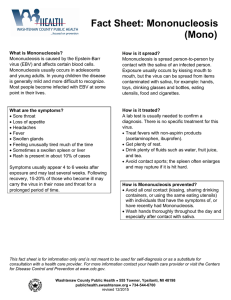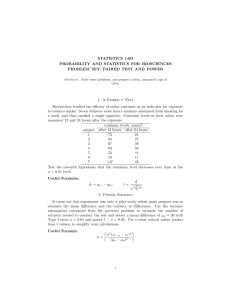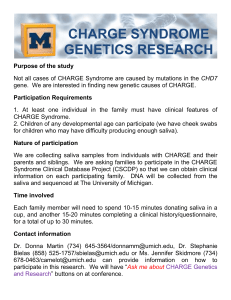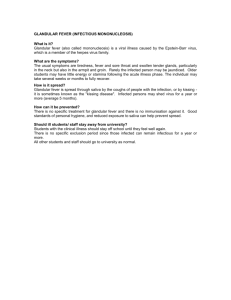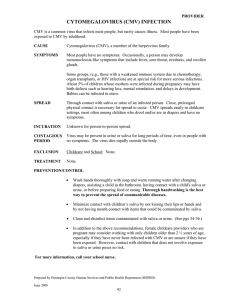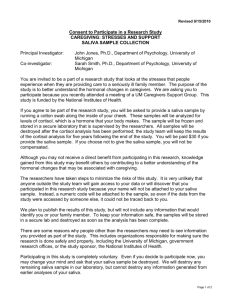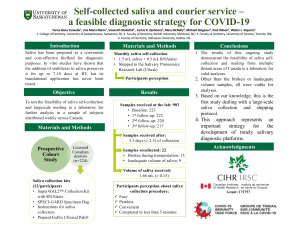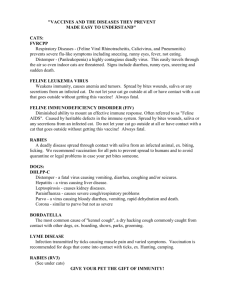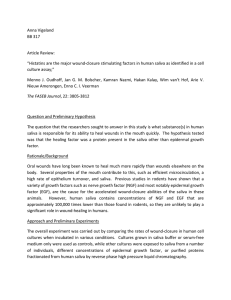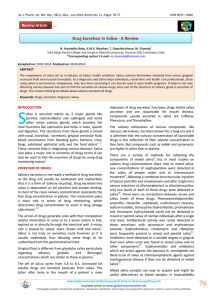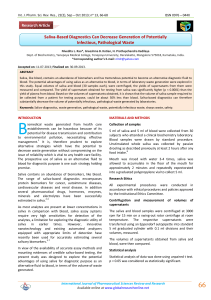MONONUCLEOSIS
advertisement
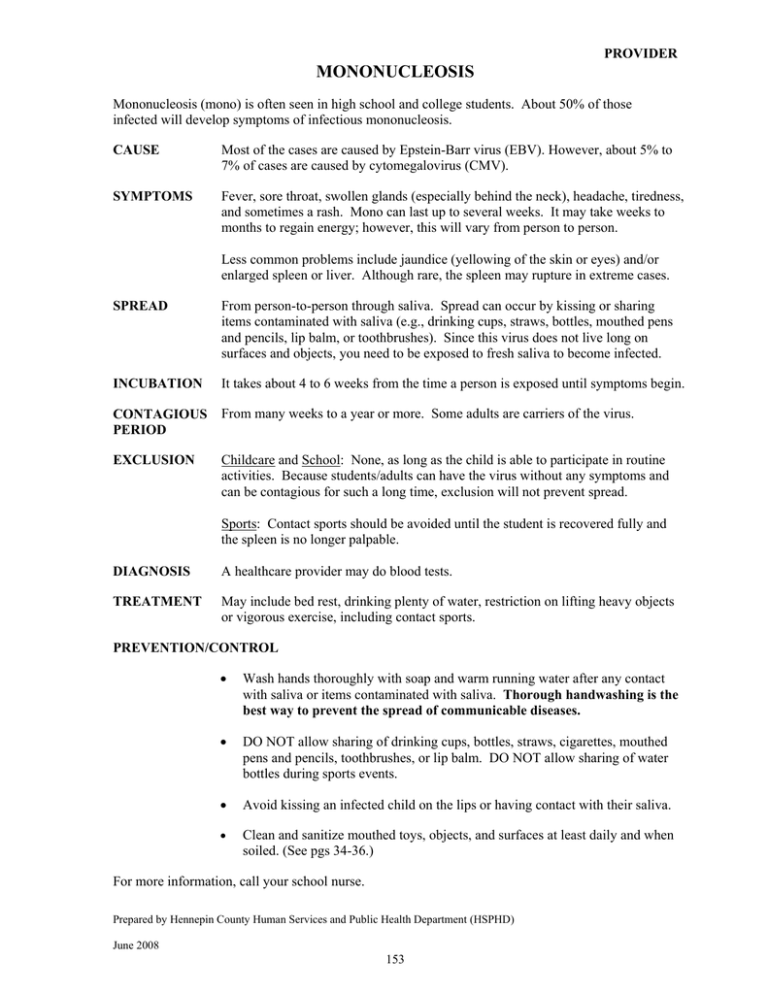
PROVIDER MONONUCLEOSIS Mononucleosis (mono) is often seen in high school and college students. About 50% of those infected will develop symptoms of infectious mononucleosis. CAUSE Most of the cases are caused by Epstein-Barr virus (EBV). However, about 5% to 7% of cases are caused by cytomegalovirus (CMV). SYMPTOMS Fever, sore throat, swollen glands (especially behind the neck), headache, tiredness, and sometimes a rash. Mono can last up to several weeks. It may take weeks to months to regain energy; however, this will vary from person to person. Less common problems include jaundice (yellowing of the skin or eyes) and/or enlarged spleen or liver. Although rare, the spleen may rupture in extreme cases. SPREAD From person-to-person through saliva. Spread can occur by kissing or sharing items contaminated with saliva (e.g., drinking cups, straws, bottles, mouthed pens and pencils, lip balm, or toothbrushes). Since this virus does not live long on surfaces and objects, you need to be exposed to fresh saliva to become infected. INCUBATION It takes about 4 to 6 weeks from the time a person is exposed until symptoms begin. CONTAGIOUS PERIOD From many weeks to a year or more. Some adults are carriers of the virus. EXCLUSION Childcare and School: None, as long as the child is able to participate in routine activities. Because students/adults can have the virus without any symptoms and can be contagious for such a long time, exclusion will not prevent spread. Sports: Contact sports should be avoided until the student is recovered fully and the spleen is no longer palpable. DIAGNOSIS A healthcare provider may do blood tests. TREATMENT May include bed rest, drinking plenty of water, restriction on lifting heavy objects or vigorous exercise, including contact sports. PREVENTION/CONTROL • Wash hands thoroughly with soap and warm running water after any contact with saliva or items contaminated with saliva. Thorough handwashing is the best way to prevent the spread of communicable diseases. • DO NOT allow sharing of drinking cups, bottles, straws, cigarettes, mouthed pens and pencils, toothbrushes, or lip balm. DO NOT allow sharing of water bottles during sports events. • Avoid kissing an infected child on the lips or having contact with their saliva. • Clean and sanitize mouthed toys, objects, and surfaces at least daily and when soiled. (See pgs 34-36.) For more information, call your school nurse. Prepared by Hennepin County Human Services and Public Health Department (HSPHD) June 2008 153
